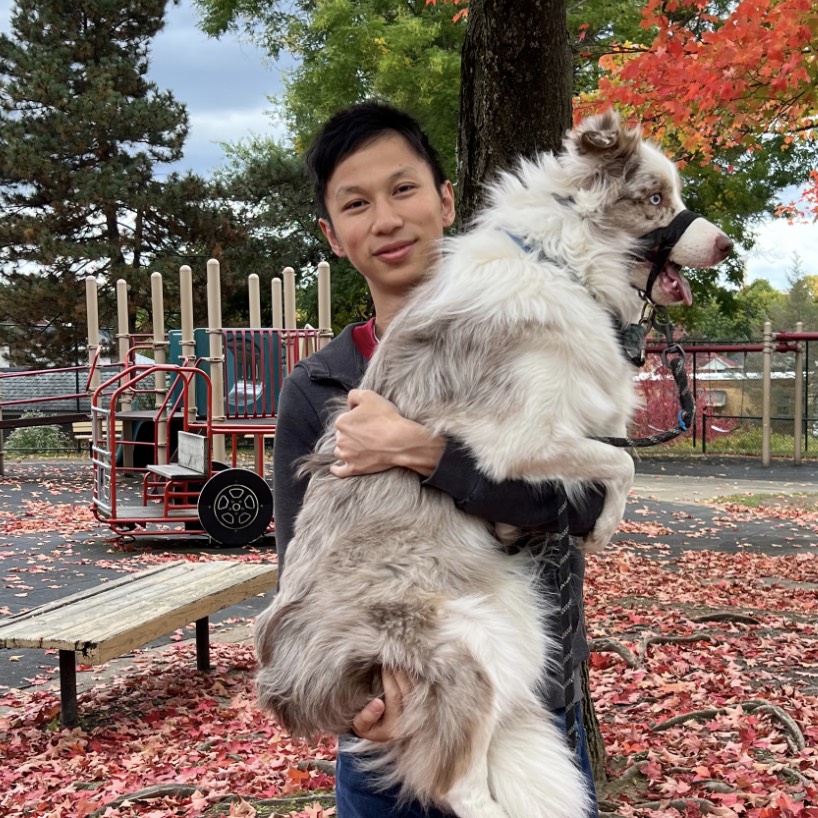Data-Driven Policy Learning Meets Scaling Law: Robot's New Era?
2024 Conference on Robot Learning in Munich, Germany
November 9th, 2024
This workshop aims to explore the innovative integration of data-driven flywheel mechanisms in robotic policy learning and will primarily discuss “Data-Driven Policy Learning Meets Scaling Law: Robot’s New Era?”.
Robotic policy learning is about developing algorithms that enable robots to adapt their behavior through data-driven policies. This workshop tackles the challenge of the insufficient data available for training robotic foundation models, focusing on creating large-scale data collection systems to activate a data flywheel. Participants will explore the integration of these flywheel mechanisms in robotic policy learning, crucial for advancing robotic autonomy and complexity. The session promises vibrant discussions, case studies, and insights into practical challenges, highlighting innovative solutions that can transform robotic autonomy. This gathering promises to be a vibrant forum for exchanging pioneering ideas and driving significant advancements in the field.
The workshop will delve into the following pivotal research questions:
- Implementation of Data Flywheels: How can data flywheel mechanisms be effectively implemented in autonomous robotic systems to enhance their learning and operational efficiency?
- Challenges in Continuous Learning: What are the main challenges in integrating continuous learning mechanisms into robotic systems, and how can these be addressed to ensure seamless functionality?
- Scaling Data-Driven Strategies: How can data-driven strategies be scaled effectively across diverse robotic applications, ensuring robustness and adaptability in various operational contexts?
This workshop will benefit the robot learning community by highlighting cutting-edge methodologies, fostering interdisciplinary discussions, and setting the stage for future collaborative research.

Keywords specific to the event
Robotic Policy Learning, Data Flywheel, Policy Generalization, Continuous Learning
Call for Papers
Submission Topics
Foundation Models in Robotics:
- Exploring the adaptation and implementation of foundation models to enhance robotic perception, control, and autonomy.
Data Generation and Collection for Robotic Learning:
- Discussing methods for automatic data generation and large-scale data collection strategies that support advanced learning algorithms in robotics.
Reinforcement and Imitation Learning for Physical Robot Control:
- Detailing the use of reinforcement and imitation learning strategies for effective physical control of robots, highlighting successes, challenges, and lessons learned.
Data Flywheel Mechanisms in Robotics:
- Case Studies: Demonstrating the impact of data flywheels on autonomous robotic systems.
- Novel Architectures: Proposing new architectures for data accumulation and utilization in robotic learning.
Continuous Learning in Robotics:
- Techniques and Algorithms: Papers detailing innovative algorithms and techniques for continuous learning in robots.
- Challenges and Solutions: Discussing the main challenges in long-term deployment and solutions to maintain stability and performance.
Scalability of Data-Driven Approaches:
- Cross-Environment Studies: Examining the scalability of data-driven robotic systems across diverse environments.
- Comparative Analyses: Comparing data-driven strategies in different scales of robotic applications, from small to large-scale systems.
Future Directions in Robotic Policy Learning:
- Visionary Predictions: Papers predicting future trends and identifying upcoming challenges in data-driven robotic policy learning.
- Innovative Frameworks: Proposing new frameworks or models that could drive the next generation of robotic systems.
Important Dates
-
Paper Submission Deadline: August 9th, 2024
-
Notification of Acceptance: September 9th, 2024
-
Camera-Ready Submission Deadline: October 9th, 2024
Important Notes
Please submit your full papers according to the following guidelines:
- Format: All papers must be formatted according to CORL template.
- Length: Full papers should be a maximum of 8 pages.
- Submission Portal: Submit your papers through Openreview System.
Contact
If you have any questions, please contact us at: muyao@connect.hku.hk.
Invited Speakers/Panelists

Technical University of Munich

Stanford University

University of Tübingen

North Carolina State University, USA

National University of Singapore, Singapore

Tsinghua University, China

Tsinghua University, China

Camel-AI

Stanford University, USA

Google DeepMind

Shanghai AI Lab, China

Massachusetts Institute of Technology, USA
Organizers

The University of California, Berkeley

The University of Hong Kong

National University of Singapore

Beihang University

The University of California Berkeley

Then University of Hong Kong

Then University of Hong Kong

Stanford University

Shanghai Jiaotong University

Technical University of Munich

Stanford University

Carnegie Mellon University

University of Macao

The University of Chicago

Shanghai AI Laboratory

The University of Hong Kong
Proposed format and Schedule
| Time | Event |
|---|---|
| 09:00-10:30 | Invited Talks Session 1 |
| 10:45-12:15 | Panel Discussion |
| 13:30-15:00 | Invited Talks Session 2 |
| 15:15-16:45 | Poster Sessions |
| 17:00-18:30 | Demonstrations and Closing Remarks |